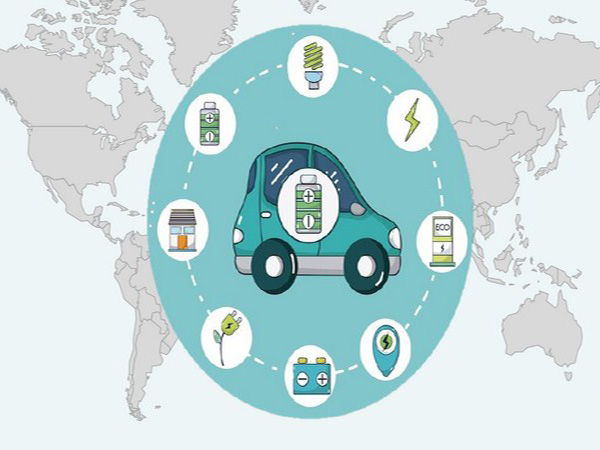Electrifying Growth: Global EV Market Set to Surge by 2033
The global electric vehicle market, valued at $255 billion in 2023, is projected to reach $2,108 billion by 2033. India's EV market is also expected to witness exponential growth, driven by favorable policies, new product launches, and significant government subsidies aimed at promoting sustainable mobility solutions.

- Country:
- India
The global electric vehicle (EV) market, currently valued at USD 255 billion, is on track to reach USD 2,108 billion by 2033, according to an Axis Securities report. This anticipated growth, with a 23% compound annual growth rate (CAGR) from 2024 to 2033, underscores the rising global demand for eco-friendly mobility solutions.
India's EV market is poised to expand significantly, with forecasts predicting annual volumes of 10 million units by 2033, a substantial leap from the 1.7 million units recorded in FY24. This transformation will be fueled by supportive government policies, new product introductions, reduced bill of materials (BoM) costs, and rapid technological advancements.
India is expected to lead this EV revolution over the next decade, especially in key vehicle segments such as three-wheelers (3W), two-wheelers (2W), electric buses, and passenger vehicles. Growth is likely to be bolstered by improved infrastructure and more affordable models entering the market.
The Indian government has allocated Rs 10,900 crore in subsidies over the next two years to boost the adoption of electric two-wheelers, three-wheelers, and buses. The scheme aims to support the sale of 24.79 lakh e-2Ws, 3.16 lakh e-3Ws, and 14,028 e-buses, with subsidies of Rs 10,000 for each electric two-wheeler and Rs 50,000 for each electric three-wheeler until March 2025.
Additionally, Rs 500 crore has been earmarked for incentives linked to scrappage certificates from approved scrapping centres to encourage the adoption of electric trucks and ambulances. An extra Rs 500 crore is designated for deploying e-ambulances, including hybrids, reflecting the government's commitment to modernizing emergency services.
The development of charging infrastructure is crucial for promoting EV adoption. The government has dedicated Rs 2,000 crore to establish public charging stations nationwide. This investment will fund 22,100 fast chargers for electric four-wheelers, 1,800 chargers for electric buses, and 48,400 chargers for electric two-wheelers and three-wheelers.
To further make EVs more affordable, the Indian government has introduced favorable tax rates, with electric cars taxed at just 5%, compared to 28% on hybrid vehicles and a steep 49% on internal combustion engine (ICE) vehicles.
(With inputs from agencies.)










